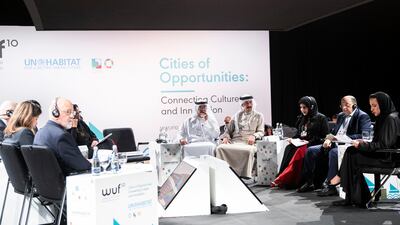The Middle East and North Africa needs to establish more think tanks with a focus on urban policy issues, an expert has said.
Dr Sheikh Abdulla Al Khalifa said more data needed to be collated regionally to guarantee a clear picture of population shifts.
As chairman of the Bahrain Centre for Strategic, International and Energy Studies, he said improved statistics would help countries “respond to the challenges" faced by today’s increasingly crowded cities.
Dr Sheikh Abdulla said think tanks and their researchers were a critical tool in helping to format sensible, strategic policy.
“The Mena region is home to 103 ranked think tanks but not one of them specialises in urban planning,” he said.
“For now, we can make use of the findings released by western think tanks but the only way to go forward and address these urban issues in our region is to build better capacity for research here.”
Political turmoil and civil war in more rural areas of some countries has led to a rapid urbanisation in the Mena region.
As a result, levels of unemployment and a shortage of affordable housing is on the rise.
Dr Sheikh Abdulla said many cities lacked the “institutional capacity” to deal with an expansion of urban neighbourhoods.
In many cases, large rises in inner city populations has led to informal settlements such as refugee camps, which often lack basic amenities.
Such a population shift has put a huge strain on welfare provision in many countries, including Jordan, Lebanon and Syria.
Statistics from the UN show 58 per cent of people in Arab states now live in urban areas.
By 2030, this figure is expected to grow to more than 65 per cent, with the upwards trend showing no sign of slowing down.
Dr Sheikh Abdulla said to ensure a more sustainable urbanisation, more focus was needed on reducing poverty while increasing education and employment opportunities.
“To better equip governments and organisations to make change, on-ground research needs to happen,” he said. "That's where think tanks come in.
"These institutes can use the data collected to identify the needs of a city. One area may need more schools, while another may need more factories.
“These researchers are much more knowledgeable about the reality of policymaking and they are inclined to pursue what interests themselves, their peers and society as a whole.”


